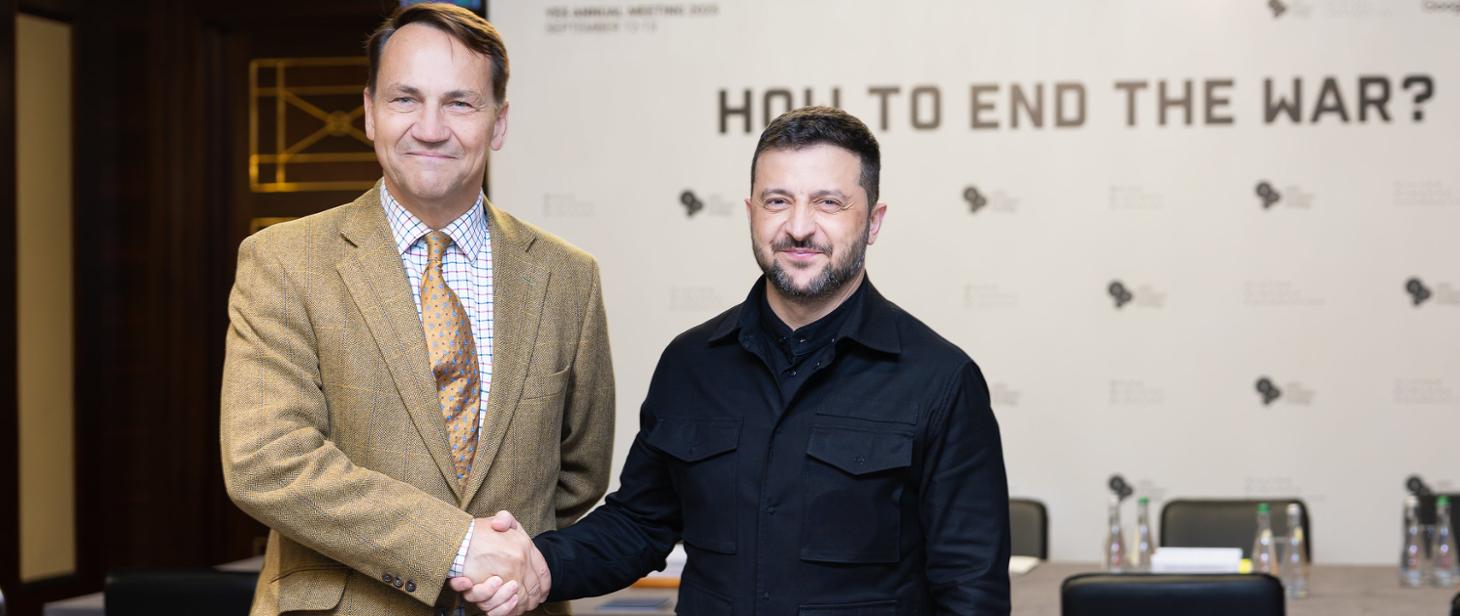


Speaking at the Yalta European Strategy (YES) annual meeting in Kyiv on Saturday, 13 September 2025, he suggested the term should be dropped in favour of a more practical focus on strengthening Ukraine and monitoring any eventual peace.
Sikorski said the concept of guarantees, as commonly discussed by Western partners, implies that guarantors would intervene militarily against Russia in the event of renewed aggression. He added that he does not see the political readiness in allied capitals to make such a commitment. “If we give security guarantees to Ukraine, we are saying we may go to war against Russia,” he said, before noting that he sees no appetite to do so and warning against promises that would not be trusted.
The minister referred to the 1994 Budapest Memorandum, under which Ukraine surrendered its nuclear arsenal in exchange for assurances of its sovereignty and territorial integrity. He argued that, in practice, Ukraine already has “assurances” rather than enforceable guarantees, and that new, more concrete promises would likely suffer from the same credibility problem if they depend on third countries’ willingness to deploy force.
Sikorski proposed reframing the debate: instead of seeking formal guarantees from partners, the priority should be to reinforce Ukraine’s capacity to deter and defend, and to plan for robust monitoring arrangements around any future settlement. “We are not talking about guarantees but about monitoring peace and strengthening Ukraine,” he said. He warned that prolonged arguments over the language of guarantees risk distracting policymakers from immediate financial and military requirements. “This self-absorbed discussion demobilises politicians from the more urgent task — finding money for Ukraine for 2026 and 2027,” he added.
The remarks came at the close of the 21st YES Annual Meeting, held in Kyiv on 12–13 September under the theme “How to End the War?”. The conference brought together officials, diplomats, military representatives, and experts from over 30 countries.
Sikorski’s intervention aligns with previous comments in which he said Ukraine’s own armed forces remain the most reliable guarantor of its security, particularly in any post-ceasefire environment. In March he stated that a strong, well-equipped Ukrainian military would be the key determinant of future stability.
His scepticism stands in contrast to parallel diplomatic work on an international framework of assurances. On 5 September, French President Emmanuel Macron said that 26 countries had pledged to provide post-war security guarantees to Ukraine, designed to deter renewed Russian attack once large-scale hostilities cease. Kyiv has also continued consultations with European partners on formalising such arrangements.
The question of how to frame Ukraine’s long-term security has sharpened amid recent escalations. This week Russian drones violated Poland’s airspace during a mass strike on western Ukraine, an incident that prompted allied consultations and renewed calls in Kyiv for a joint European air-defence architecture. Warsaw has condemned the incursions and pressed for stronger collective measures.
Proponents of guarantees argue that a clear and binding package — covering advanced air defence, long-term funding, training, intelligence and, potentially, rapid-reaction measures — could deter further aggression by raising the costs for Moscow. Sikorski’s assessment highlights the political limits of any scheme that implicitly requires combat commitments most allies are not prepared to make. The Polish minister’s call therefore points back to two near-term priorities: securing multi-year financial envelopes for Ukraine and ensuring a continuous pipeline of armaments, ammunition and air defence systems to sustain military pressure and protect critical infrastructure.
The debate is likely to intensify as governments draft budgets for 2026–27 and as Ukraine’s partners seek a balance between open-ended commitments and credible deterrence. While Kyiv has pressed for defined guarantees — and for a pathway that ultimately removes any ambiguity about Western support — Sikorski’s remarks underscore a competing view: that clarity about what allies will not do may be as important as clarity about what they will do. In the absence of a willingness to fight, he argued, the most effective course is to continue strengthening Ukraine’s own capacity and to prepare verifiable monitoring mechanisms for any future settlement rather than rely on the terminology of “guarantees” that may never be activated.
Jets scramble, policy hesitates: Alliance response to Poland incursions underwhelms